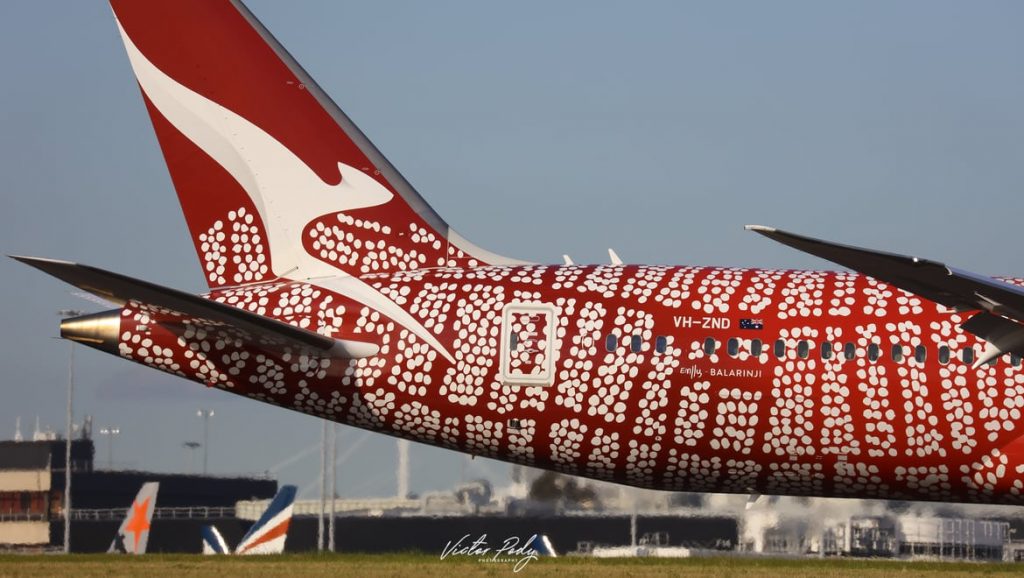
Qantas flights from London will next year partly use sustainable aviation fuel derived from used cooking oil.
In a major shift towards sustainability, the flag carrier has signed a deal with BP to purchase 10 million litres of SAF in 2022 with an option to purchase up to another 10 million litres in 2023 and 2024 for flights from Heathrow Airport.
This represents up to 15 per cent of Qantas’ annual fuel use out of the British capital and will reduce its carbon emissions by 10 per cent.
The fuel will be produced with certified bio feedstock from used cooking oil and other waste products. This is then blended with normal jet fuel.
Qantas’ chief sustainability officer, Andrew Parker, said, “Zero emission technology like electric aircraft or green hydrogen are still a very long way off for aviation, and even further away for long haul flights like London to Australia. SAF and high-quality carbon offsetting are therefore critical on the path to net zero.
“Aviation biofuels typically deliver around an 80 per cent reduction of greenhouse gas emissions on a lifecycle basis compared to the jet fuel it is replacing and is the most significant tool airlines have to reduce their impact on the environment
“The technology is already tried and tested, and it can be used in the aircraft we have now, which is why government and industry overseas are investing heavily to build their own SAF industries.”
Qantas said it is also in discussions about using SAF at its other overseas ports, such as Los Angeles, and recently joined other Oneworld airlines in signing a memorandum of understanding to use SAF for flights from San Francisco from 2024.
The business said these volume agreements are necessary to bring the cost of SAF down, which can be several times more expensive than jet kerosene.
Parker also argued that given the importance of aviation to Australia, there’s an opportunity to build a local SAF industry.
“The Qantas Group would be its biggest customer and we’ve already committed $50 million in seed funding, but it’s going to take a concerted effort from industry and government to make this happen,” he said.
Qantas and Jetstar have previously flown several demonstration flights using SAF, including a flight across the Pacific in 2018 powered by biofuel derived from mustard seeds.
However, this is the first time an Australian airline will purchase SAF on an ongoing basis.
In January, Australian Aviation reported that Qantas and Air New Zealand both signed significant agreements pledging to take advantage of sustainable fuels.
The Australian flag carrier signed a deal with BP to “explore opportunities” to utilise advanced sustainable fuels, while Air New Zealand has agreed “in principle” to back the country’s biofuel mandate to lower carbon emissions.
The joint development underlines the industry’s pre-COVID resolve to tackle perceptions that they are a leading contributor to global warming.
















Vannus
says:Good that an actual date for usage of SAF has been announced.
QANTAS has been working towards this goal for a few years’ now.
Hopefully it’ll become an industry in Australia, so those equipped with airliners’ which can operate on this type of fuel will use it.
Those which don’t, will have to buy new, or newer jets to compete, & that’s very pertinent for one carrier with very old prop-types’.
Rod Pickin
says:Well it’s fine to commit to investigating and researching the benefits and usage of “Bio /SAF fuels”, – that should be applauded, again congrats to QF but, to commit to a short to medium timeframe of the purchase and usage of such fuels which as reported will cost up to four (4) times the cost of JET A1 is absolute economic madness and purely a look good PR exercise and total support for the Go Woke Go Broke theory. Accepting the fact that there may be a possible environmental concern over the use of fuels such as JET A1 that problem lies with the fuel producers/suppliers to isolate and fix and at a same or similar cost too. With technical expertise at such high levels today I fail to understand how fuel producers/suppliers haven’t come up with the answers, god knows the problem has been around for ages.
Nicholas
says:Here’s my five cents worth, I read stories like this and then just move on. Basically in this case, I don’t care what QF do as long as it doesn’t cost me extra and it doesn’t impact on safety.
We get so tied in knots on a daily basis now, about things which in the grand scheme of things just don’t matter….
Am I the only one to be tired and over such much of this “save the world” stuff through some minor and trivial change???
Rod Pickin
says:Hi Nicholas and yes I can empathise with your feelings but someone/some group is feeding the debate with a possible bias designed specifically to disrupt a legitimate enterprise. In the case in question, what is the problem?, is it the fact that JetA1, a highly refined combustible hydrocarbon in liquid form is injected into the engine, mixed with fresh air, compressed and then ignited or, is it the resultant exhaust at temps about 900dC containing minor carbon deposits in either a solid or gas form. In simple terms the same results will occur with Bio/SAF fuels and at a major cost increase so one is entitled to ask. what is the agenda here?